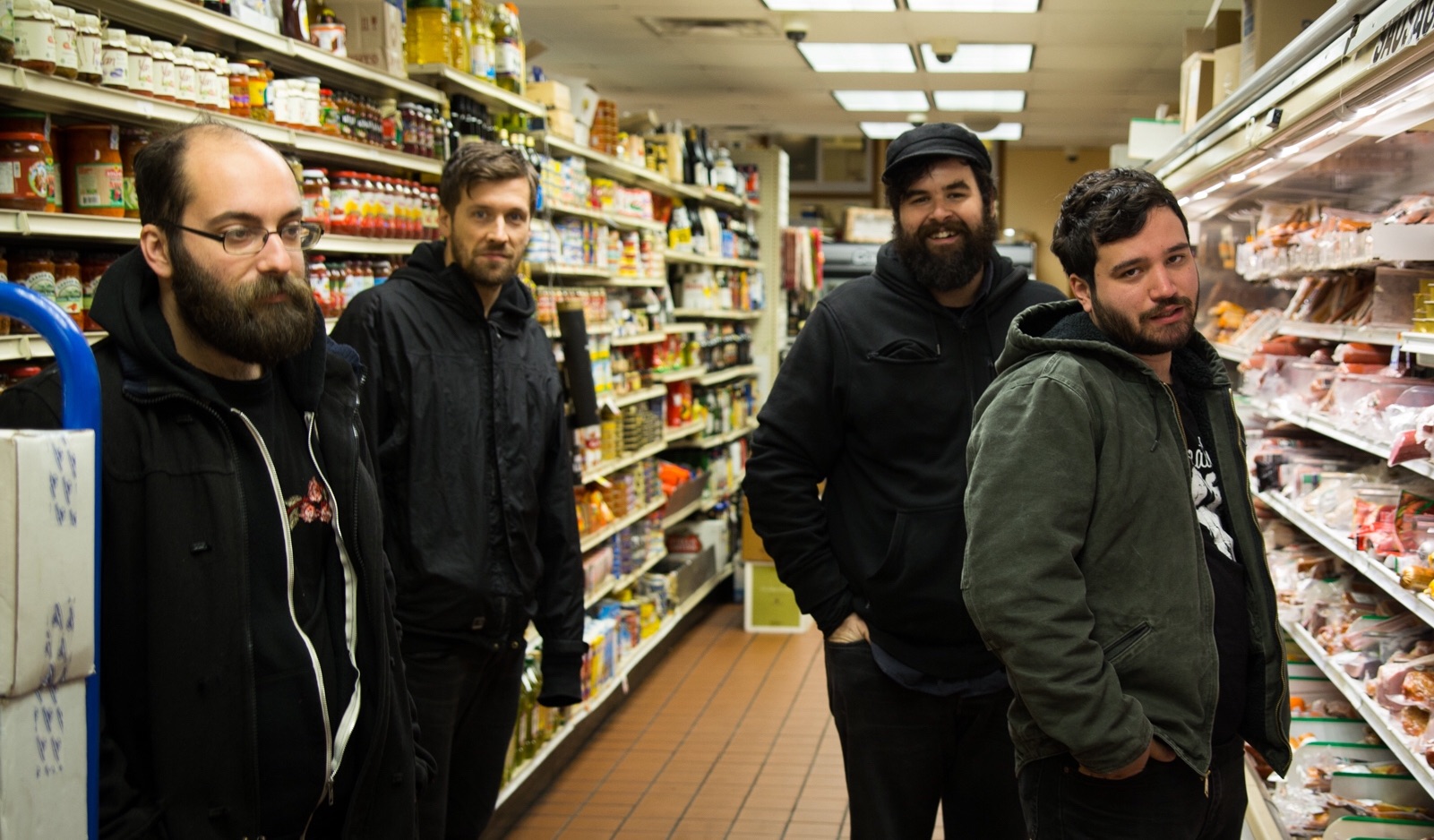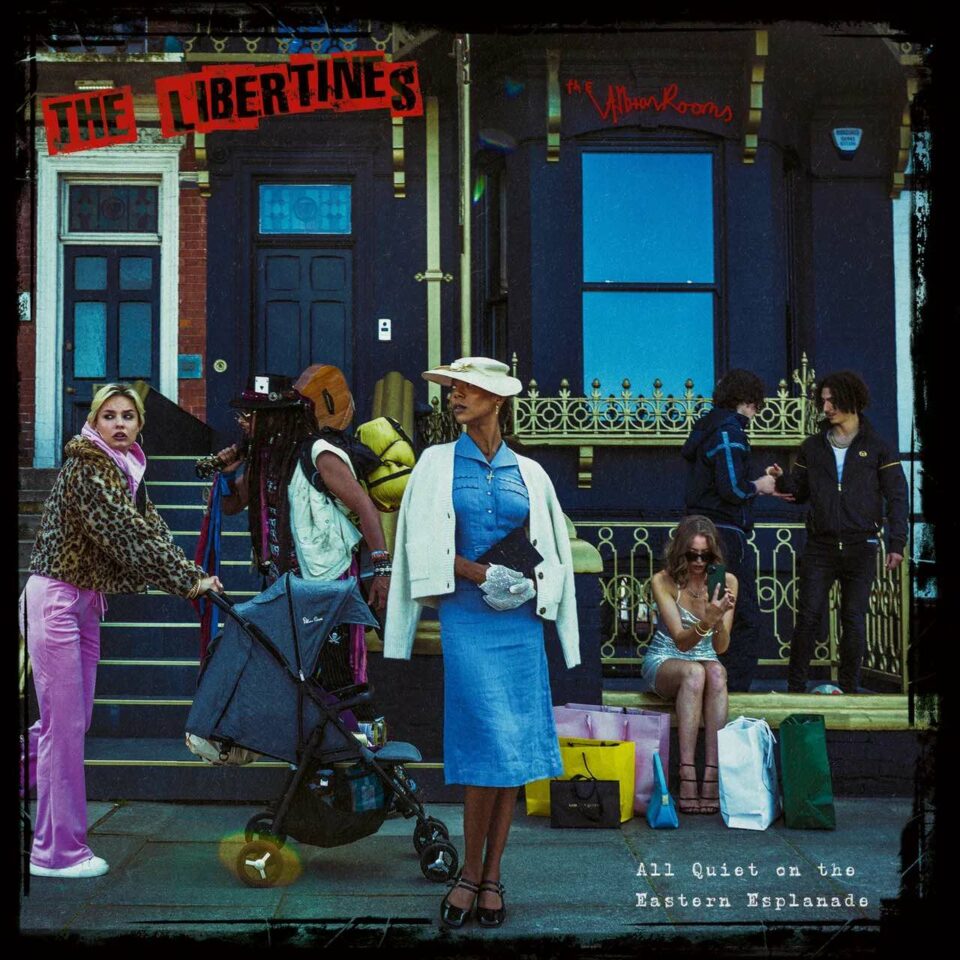Just over a decade into beloved rock band Pile’s existence, something amazing happened for frontman Rick Maguire: Finally, after six albums that all drew more critical acclaim than their predecessors, while slowly reaching more and more listeners outside the national underground, Maguire was able to make his band a full-time pursuit. He didn’t necessarily expect to get here—and many of Pile’s contemporaries didn’t.
Shelving all day jobs and side gigs, Maguire says, “was definitely the objective from day one. I was totally cool with the idea of it not getting to that point,” he clarifies, “but I’m happy that it has.”
Green and Gray, Pile’s upcoming seventh album and their fourth for every garage rock fan’s favorite truly independent label, Exploding in Sound, is the band’s first release during Maguire’s full-time era. Across the LP’s nearly hour-long runtime, Maguire reflects on growing older—he was twenty-one when he self-released Pile’s 2007 debut album, Demonstration—and how he feels about committing so wholly to Pile at an age when some people leave music behind.
“When I was younger,” he says, “I was pretty well convinced that I was going to front Pile until I was physically unable to. And now I still feel that way, but it’s not something in my imagination anymore.” As a result, on Green and Gray he “can point to things more directly” about aging than on past albums, on which this topic was, at most, “addressed in broader strokes.”
As Maguire sings the album’s very first lyric, heard twenty-two seconds into the string-speckled dissonance of “Firewood,” he cuts no corners: “No longer burdened by youth / Not burning and open and raw like a wound.” On the blaring garage rock attack of “A Labyrinth with No Center,” which is sonically a more traditional Pile track (especially its sped-up, oft-shouted final minute and a half), he plays the role of an old dog who can’t be taught new tricks: “Patterns and habits / I live inside them now.” Across “My Employer,” one of the album’s slowest unfurling dirges, he ties his aging to going full-time: “I’m aware of my age / My impermanence and so forth / I’ve made arrangements to change / But my nature will make its case / And then work comes first.”
“The expected trajectory,” Maguire says of people his age, “is to get a ‘real and steady’ job and start a family. In my generation, it’s becoming less the norm—but even so, while it’s not as prevalent, it’s still pushed.” Across Green and Gray, he grapples with whether he wants the many things society expects of thirty-somethings that he rejected as a twenty-something. He never quite decides.
“You don’t have to know an answer right away,” he says. Although during the militant noise-rock stomp of lead single “Bruxist Grin,” he sneers, “What you don’t want can find some way to stay with you,” he also never finds a need—or way—to let it go. On the gradually swelling elegy “Hair,” Maguire reflects on how so many people his age desperately try to piece together a life that fits the constructs hammered into them as children, even if deep down they know these lifestyles don’t fit them. “I used to think / There was just one puppeteer pulling on all the strings,” he sings, “But now / It seems like we’re all tugging on something / In one big ol’ tangled mess.” How many people, Maguire seems to ask, are really happy working forty hours a week, living within the career and family structures capitalism has established in America?
“The expected trajectory is to get a ‘real and steady’ job and start a family. In my generation, it’s becoming less the norm—but even so, while it’s not as prevalent, it’s still pushed.”
Among the people who have opted for such traditional lifestyles are many of the members of the bands Pile came up with: Krill, LVL UP, Big Ups, a bunch of other garage rock bands associated with Exploding in Sound existing contemporaneously with Pile—most of them just don’t exist anymore. “A lot of these people are…getting jobs that are much nobler than me just choosing to indulge the need to express myself on a stage,” Maguire says of his friends from these now-defunct groups. Ever humble and kind, he makes sure to clarify: “It’s not any sort of badge of honor I’m holding onto.” If anything, he’s just happy he can keep Pile going.
“I [couldn’t] go forward trying to juggle a job [with music],” he says of going full-time. “I have to be mentally and physically available,” he continues, plus he “wanted to spend full days trying to write.” Even if focusing solely on Pile pushes Maguire into an especially vulnerable space—see his depiction of himself as a public figure “trying to convince everybody that I’m a worthy candidate for their time and attention” on the acidly sauntering “Your Performance,” or having a surgeon expose his insides to everyone on the manic “On a Bigger Screen”—he wouldn’t have it any other way. “It doesn’t come without its stressors,” Maguire says of being in a band and only being in a band, “but I’m really grateful that I’m able to do this and that it’s able to sustain me.” FL









